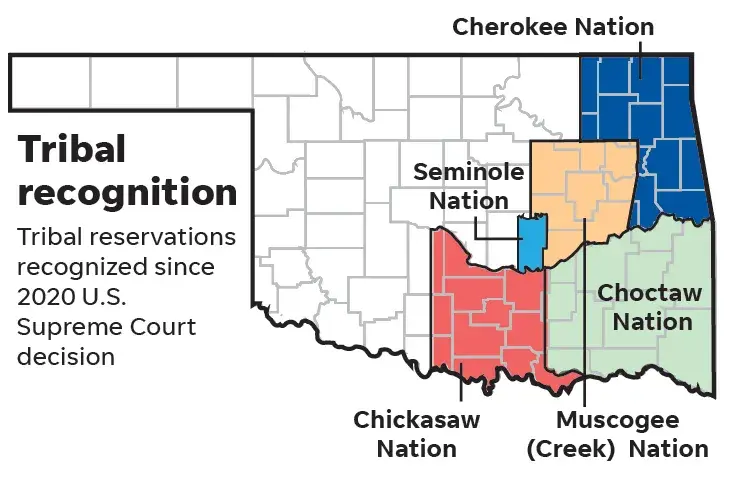2022.23: 'We Are Still Here' - Indigenous People in America
- Professor Floros

- Oct 8, 2022
- 3 min read

Dr. Angela Walden
Assistant Vice Chancellor of Diversity Initiatives
Director, Bridge to Faculty Scholars Program
Visiting Assistant Professor, Department of Psychology
University of Illinois at Chicago
Citizen, Cherokee Nation
Dr. Walden's Land Acknowledgement Statement
In the spirit of healing, I acknowledge and honor the original peoples of the Chicagoland area – the Three Fires Confederacy, Potawatomi, Odawa and Ojibwe Nations, as well as other Tribal Nations that know this area as their ancestral homeland, including the Menominee, Ho-Chunk, Miami, Peoria, and Sac and Fox. This land is the current home to one of the largest urban Native American communities in the United States, and the city was a primary relocation site during the mid-20th century as a result of federal policies aimed to terminate Tribal communities and sovereignty. We are still here. Native people are part of Chicago’s past, present, and future. As part of a land grant university system that occupies and benefits from the theft of Indigenous lands, we have a responsibility to Native American community members at UIC, in Chicago, within the United States, and around the world. Acknowledgement requires action; please consider the multitude of ways to translate knowledge and thoughts into active support for Indigenous peoples and communities locally, nationally, and around the world. I commit to continue my work to build an inclusive and welcoming climate for Native and Indigenous peoples at UIC and building reciprocal relationships with Tribal communities.
Other names of Indigenous Tribes
Ojibwe = Chippewa
Ho-Chunk = Winnebago
Odawa = Ottawa
Sac and Fox = Sauk and Meskwaki

Indigenous Resources at UIC/in Chicago
Indigenous People & Creative Works
Dr. Jacki Rand, University of Illinois, Urbana-Champaign
Dr. Rand's episode of The Politics Classroom
Dr. Amy West, University of Southern California
Dr. Myra Parker, University of Washington
Reservation Dogs - TV series
This Land - podcast
Native American DNA: Tribal Belonging and the False Promise of Genetic Science (2013), book by Dr. Kim TallBear
Stephanie Fryberg & Sarah Townsend (2008), "The psychology of invisibility," in G. Adams, M. Biernat, N. R. Branscombe, C. S. Crandall, & L. S. Wrightsman (Eds.), Commemorating Brown: The social psychology of racism and discrimination (pp. 173–193). American Psychological Association.
Indian Country Today - independent digital news
Story on Elder Susan Power, Standing Rock Sioux Tribe by Amelia Schafer
Other Works Mentioned in the Episode
"Uprooted: The 1950s plan to erase Indian Country," by Max Nesterak, Minnesota Public Radio (November 4, 2019)
Indian Metropolis: Native Americans in Chicago, 1945-75 by James LaGrand, 2002.
Chicago Monuments Project: Recommendations for the Current & Future Collection
Field Museum's Native Truths: Our Voices, Our Stories exhibit
Last of the Mohicans - movie (1992)
Supreme Court Cases Mentioned
Haaland v. Brackeen: To be argued in the 2022-2023 session of the US Supreme Court
Indian Child Welfare Act (ICWA) (1978)
Passed by Congress to set "minimum Federal standards for the removal of Indian children from their families and the placement of these children in foster or adoptive homes, and confirms Tribal jurisdiction over child-custody proceedings involving Indian children." This was necessary because state and private non-Tribal agencies were removing children from their homes and placing them in non-Tribal foster and adoptive homes.
More than what the fate of many Native children becomes, if ICWA is found to be unconstitutional based on a Federal burden on states prohibited by the 10th amendment, the very foundation of Tribal sovereignty and all Federal law related to recognized Tribes could be weakened.
McGirt v. Oklahoma (2020): In which a man, who is a member of the Muscogee (Creek) Nation, was convicted in Oklahoma state court of sex crimes against a child. He argued that the state of Oklahoma did not have jurisdiction because under the Indian Major Crimes Act, the federal government has jurisdiction over crimes committed within a recognized reservation. In a 5-4 decision, the Court found that most of eastern Oklahoma remains "Indian Country" based on treaties from the 1830s, which only Congress can repeal.

Trail(s) of Tears - Removal of Southeastern Tribes to Oklahoma in the 1830s

Laws/Treaties/Policies from the Episode
Indian Child Welfare Act (ICWA, 1978)
Treaty of St. Louis (1816): Set the boundary between Indian land and land that could be settled by white settlers in Chicago



Treaty of Chicago (1833): All land held by the Ojibwe, Odawa, and Potawatomi Tribes in northern Illinois, Wisconsin, and Michigan were ceded to the US government for money and land west of the Mississippi.
Indian Relocation Program (1950s/1960s)
Another source that also covers "termination" policy
Indian Boarding Schools (1819-present)




Comments